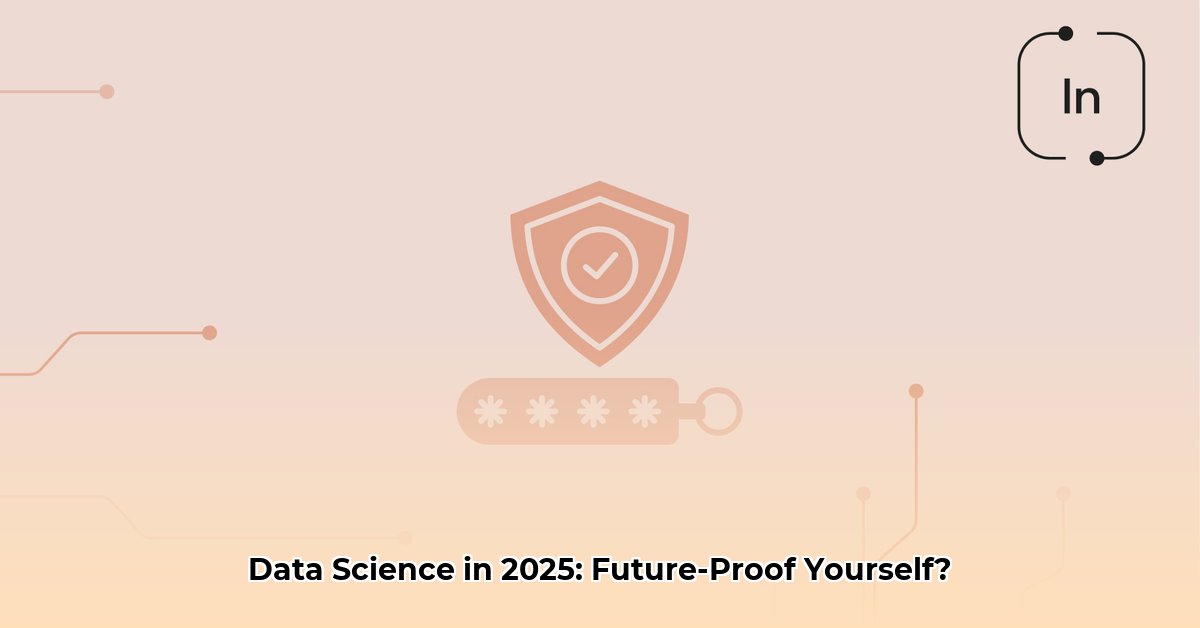
Navigating the Evolving Landscape of Data Science in 2025
The demand for data scientists is exploding. Businesses across all sectors are realizing the transformative power of data-driven decision-making, creating a massive surge in job opportunities. But the field is evolving rapidly. To thrive in this dynamic environment, professionals need to continuously adapt and acquire cutting-edge skills. This article will provide a comprehensive guide to future-proofing your data science career in 2025, focusing on the key skills, educational paths, and strategic career planning needed to succeed.
The Data365 Advantage: A Comprehensive Learning Platform
Data365 presents a vast ecosystem of online data science courses, catering to all levels of expertise—from beginner to expert. Its comprehensive curriculum covers a wide range of specializations, including, but not limited to, data analysis, machine learning, deep learning, and business analytics. This breadth of options, while beneficial, can also be overwhelming. The following sections will provide guidance on navigating this landscape effectively. Are you ready to unlock your data science potential?
AI and Deep Learning: Essential Skills for the Future
AI and deep learning are no longer futuristic concepts; they are foundational elements of modern data science. These technologies are driving innovation across industries, and mastering them is crucial for staying competitive in 2025 and beyond. Many Data365 courses integrate these cutting-edge technologies, ensuring graduates are well-prepared for the demands of tomorrow's job market. "Ignoring AI and deep learning is akin to ignoring the internet in the late 90s," says Dr. Anya Sharma, Professor of Computer Science at Stanford University.
Charting Your Course: A Strategic Plan for Data Science Success
The path to a successful data science career involves a well-defined strategy combined with consistent effort. Follow these steps to maximize your chances of success:
Self-Assessment: Honestly evaluate your current skillset. Identify your strengths and weaknesses. This honest introspection is crucial for choosing the right learning path. Do you need to strengthen your coding skills, or do you need to hone your statistical analysis abilities?
Goal Setting: Define clear, measurable career goals. Where do you see yourself in five years? This vision will guide your learning journey and keep you focused on the right skills. Is your goal to lead a data science team or specialize in a niche area like healthcare analytics?
Program Selection: Research reputable programs offering strong industry connections. Choose a program that aligns with your goals and learning style. Data365 offers a wide variety of programs allowing for customization. Positive student reviews and robust career services are invaluable.
Hands-On Experience: Prioritize programs offering hands-on projects and case studies. This real-world experience is highly valued by employers. A portfolio showcasing your practical skills significantly strengthens your job applications. "Employers are looking for demonstrable skills, not just theoretical knowledge," states John Miller, Head of Data Science at Google.
Continuous Learning: The data science field is constantly evolving. Commit to lifelong learning by staying updated on the latest trends and technologies.
The Data Science Education Landscape: Challenges and Opportunities
The proliferation of online learning presents both significant opportunities and challenges. The following table highlights these aspects:
| Challenge | Opportunity |
|---|---|
| Maintaining consistent program quality | Development of rigorous accreditation standards and improved student success metrics. |
| Keeping curricula up-to-date | Enhanced collaboration between educational institutions and industry experts to ensure course relevance. |
| Fostering a strong learning community | Creation of vibrant online communities and networking events to facilitate peer learning and collaboration. |
A Roadmap to Success: Actionable Steps for All Stakeholders
Success in data science requires collaborative effort from all stakeholders:
For Aspiring Data Scientists:
- Short-Term: Build a strong foundation using Data365's structured learning paths.
- Long-Term: Pursue advanced certifications in specialized areas like AI or cybersecurity.
For Educational Institutions:
- Short-Term: Integrate real-world projects and emphasize AI/machine learning in curricula.
- Long-Term: Strengthen industry partnerships to provide internships and career services.
For Employers:
- Short-Term: Identify specific skill needs and partner with educational institutions to address skill gaps.
- Long-Term: Invest in employee training and adapt hiring practices to reflect evolving demands.
How to Choose the Best Online Data Science Course in 2025
The sheer volume of online data science courses can be overwhelming. To choose wisely, focus on these key factors:
- Practical Application: Abundant hands-on projects are essential. Does the curriculum offer ample opportunities to apply learned concepts?
- Instructor Expertise: A responsive and experienced instructor is crucial for effective learning. Check reviews and access forums for insights from current or former students.
- Curriculum Relevance: Does the curriculum cover the in-demand skills for 2025 and beyond? Proficiency in Python is a must, but explore additional tools like SQL, cloud computing, and specialized areas like deep learning.
- Career Services: Look for courses providing career guidance, resume reviews, and job placement assistance.
- Community and Networking: A strong learning community facilitates collaboration and networking.
Your choice should also depend on your skill level, learning style, career aspirations, and budget. Remember that continuous learning is crucial for long-term success in this ever-evolving field. Addressing ethical considerations, including data privacy regulations like GDPR and CCPA, is paramount. Choosing a course that integrates these elements is not just beneficial but essential for responsible data science practice.